Welcome to Paulina Cocina! Today, the classic Argentine dressing: chimichurri !
Mayonnaise at your house!
Suck on that Dijon mustard!
Don't even get me started on the barbecue!
Here the champion to accompany the meat, is the Creole chimichurri, gentlemen!
They say the name comes from an American man who came to the Buenos Aires countryside and created this blend. Maybe he stole it from someone and patented it later, but we don't know.
The thing is, this guy's name was Jimmy, and he thought the sauce he had in his hand could be called curry, so he said, okay, I'll call it "Jimmy's curry."
But it seems that the gauchos of the province of Buenos Aires had pronunciation problems and ended up calling it chimichurri.
Could it have happened like this? Of course it could!
Or not, I don't know. The important thing here is that, in one way or another, we have this beautiful sauce in our folklore to brighten our lives!
You can watch the full video here, and subscribe to the YouTube channel by clicking here to access all the network's exclusive content!
About this Creole chimichurri recipe
The truth is, it's really, really easy to make this chimichurri. The magic lies in two things for me: one, finding the combination of seasonings that you find most delicious.
You can add more or less garlic, you can make it spicier, without salt, with sea salt, with a pinch of curry, with whatever you like!
Varying the proportions of the same ingredients, or even changing them, will always give you different and wonderful results!
Find out what kind of chimichurri is yours, the one you want to be remembered for after you die. (It was less, right?)
The second key to success is to let it sit in the fridge for a while before you start using it. I'm not going to say 84 years, but you can handle it for a week. Try it as soon as you make it and try it a week later—the difference is amazing. And a month later, I'm not even going to say anything.
It's a preserve in oil, so if the jar is clean and has no air left, you can keep it in the refrigerator for a while.
It's not just used to season meat and chorizo! It's also great with vegetables and pasta... well, that's something else!
Greetings and until next
Juanita
Assistant
Homemade Chimichurri Recipe in 2 Minutes
Ingredients for a good jar of chimichurri
- 2 tbsp fresh parsley
- 1/2 tbsp oregano
- 1 garlic clove
- paprika 1/2 tbsp
- ground chili 1/2 tbsp
- salt 1/2 tsp
- 1 splash of balsamic vinegar (or vinegar)
- Black pepper
- Olive oil
How to make homemade chimichurri step by step
go put the choris!
- The first thing we're going to do is chop the garlic and parsley. Remember, we use the leaves of parsley, so you'll need to remove them one by one or cut them close to the stem to have them ready. You can add one or two garlic cloves, depending on your taste.
- Once everything is finely chopped, we'll put two tablespoons of the mixture in the bottom of a jar to begin assembling our chimichurri. Add the sweet paprika, ground chili (if you want it to be a little spicy, you can add more ground chili), oregano, pepper, and salt.
- Now we are going to add the oil, they can use olive oil that gives it a stronger taste, or sunflower oil so that the chimichurri is softer. We complete with oil until the condiments are covered. Finally we will add a well -generous jet of balsamic aceto, or vinegar if they wanted.
- We cap the jar, and now it's time to shake it! The idea is to mix and blend all the ingredients until you have a nice sauce! Let's get those biceps going!
A beauty!
Tell me if it doesn't make you want to bite the screen
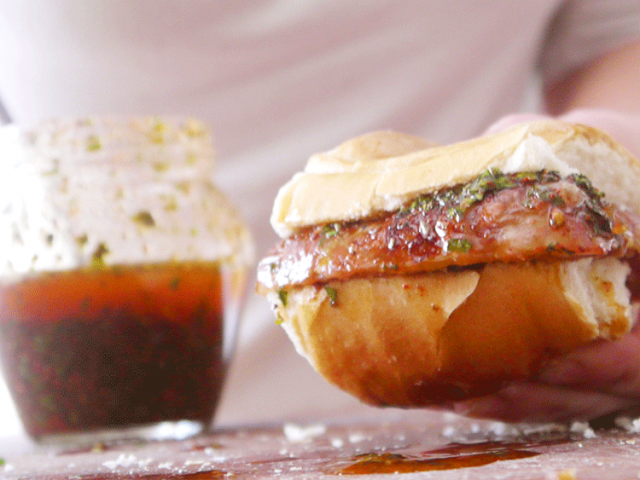
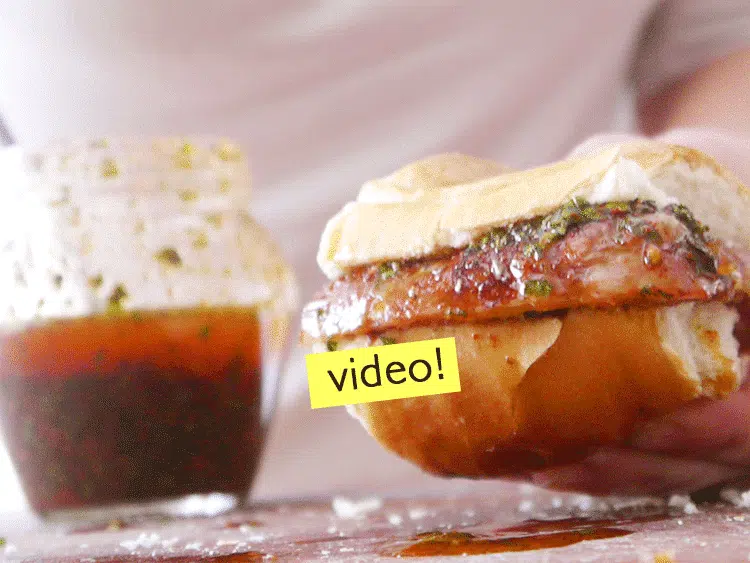
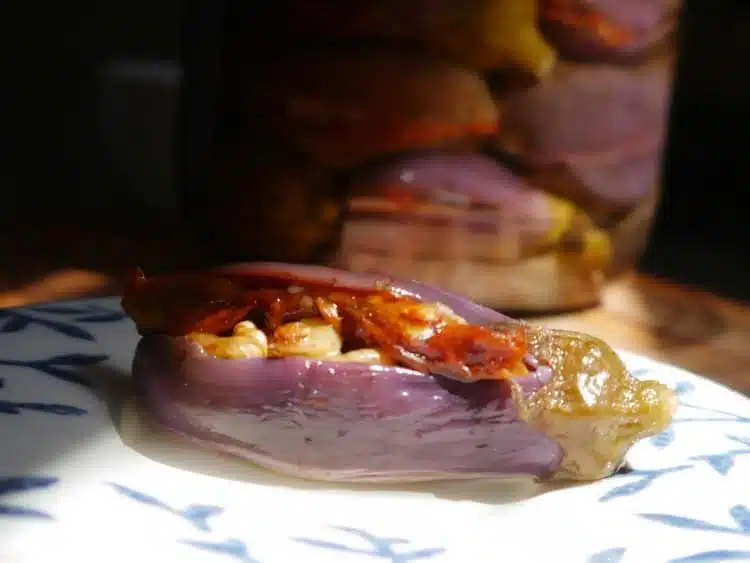
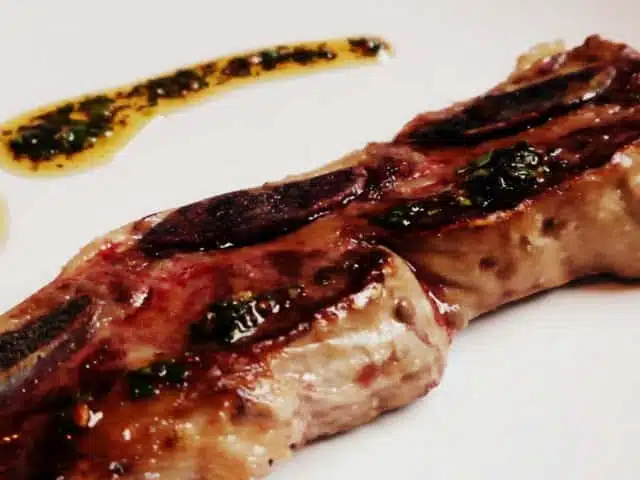
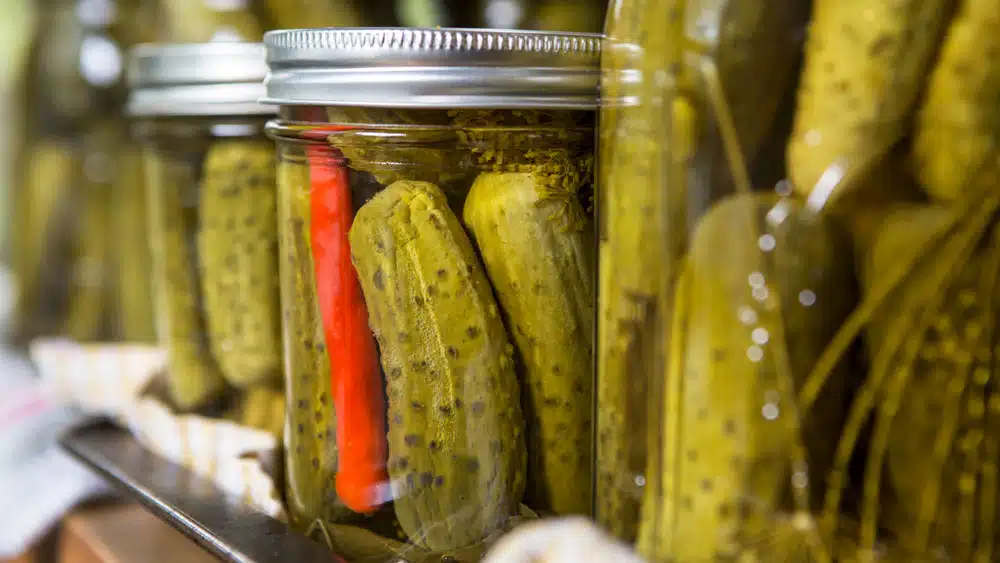


It must be delicious. I'll make it for New Year's Eve dinner. Can I replace the pepper with ginger?
What paprika do you use? Fresh or ground.
Can you post a photo, please?
From Colombia.
Never use vinegar or olive oil; they're fads to act strange.
It should be a neutral oil, with sunflower oil; it's more than enough.
Paprika is always optional; it's not a Creole requirement.
Paulina, your recipe is wonderful, very Argentine and classic. As for the origin of the name, our national chimichurri originated between northern Castile and the Basque Country, and so did its name. It was later discontinued in the Mother Country, Spain, like so many other things, such as empanadas, which came from the Arabs (although still present in Andalusia but with a sweet filling), or certain varieties of wine like Torrontés, which survived in the Northwest. Greetings.